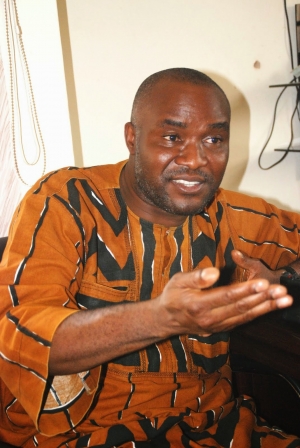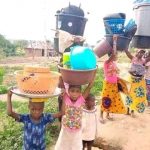By Emmanuel Onwubiko
Long before Major General Muhammadu Buhari (as he then was) got elected in 2015 as a civilian President, previous federal administrations such as that of Chief Olusegun Obasanjo had made strident strides towards returning the massive looted public funds siphoned by the late General Sani Abacha-led military junta and hidden in different offshore Bank accountants.
Those administrations succeeded in getting some of these money which is within the region of $5 billion stashed away by Geberal Abacha and his family members.
As the governments exited for their successors, they left the legal framework in place for further recoveries which came raining down in the current President Muhammadu Buhari’s administration. It would seem that the administration of President Muhammadu Buhari has harvested what his predecessors worked for in the area of recovery of looted funds.
Basking in the euphoria of the pyrrhic victory it recorded against the then incumbent President Goodluck Jonathan’s government, President Muhammadu Buhari in agreement with the World Bank promised that money looted by Nigeria’s former military ruler Sani Abacha is to be distributed to poor families, the government says.
The distribution as stated then at the inception of the current administration was to start in a jiffy after more than $300m (£228m) was returned by the Swiss authorities.
The money, stolen by Abacha in the 1990s, is due to be given to around 300,000 households, with each getting around $14 a month. So claimed the Federal government. But now we know better because few years after these cash were reportedly gifted to the so called poor Nigerians, the Coubtry under the watchful eyes of President Muhammadu Buhari became the poverty capital of the Workd with over 90 million absolutely poor Nigerians thus overtaking India which is the second largest and most populated place on the planet Earth.
This was why critics had feared that the the handouts could be a way to influence the 2019 election.
At this rate, the payments – to be made to residents in 19 of Nigeria’s 36 states – should last for about six years, it was estimated then.
The money was originally deposited in Luxembourg, and is a fraction of the billions of dollars allegedly looted while Abacha was in power from 1993 to 1998.
He ruled Nigeria with an iron fist until his sudden death on 8 June 1998 after an apparent heart attack.
President Muhammadu Buhari made the recovery of stolen assets a major part of his 2015 election campaign – he has said he will stand for re-election, according to foreign agency reports.
Besides, Switzerland is believed to have returned about $1bn to Nigeria over the last 10 years.
Few years back, Roberto Balzaretti, one of the Swiss officials involved in the negotiations with Nigeria, told the BBC that there would be strict conditions attached to the transfer of the money back to Nigeria.
The cash payments are part of the Nigeria National Social Safety Net Program (NAASP) which helps poor families.
The money will be paid in instalments and in small amounts from July under the supervision of the World Bank, which will also conduct regular audits.
If the first instalment is not properly accounted for, subsequent payment will be halted. This is to prevent the funds from being stolen again, Mr Balzaretti said. To provide some kind of proof that the recovered loots are being well used, the government has hired some friendly non governmental groups to monitor government.
As arguments have intensified on whether the government has realistically bailed out the millions of poor Nigerians or not, the Minister of Humanitarian Affairs, Disaster Management and Social Development, Sadiya Umar Farouq, interjected and said the N5,000 monthly national cash transfer to vulnerable households goes a long way in reducing poverty. This is as untrue as it is humiliating. How much is a mudu of rice in the market now?
She went on against clear logic to state that the N5,000 is bringing relief to impoverished Nigerians and this fallacious statement was made during a briefing with State House reporters in reaction to the relevance of the initiative to the Federal Government’s plan to pull out 100 million Nigerians from extreme poverty.
“If you look at the people that you are taking this intervention to, N5,000 means a lot to them because these are poor and vulnerable households and it changes their status, but for you and me, N5,000 is not even enough for us to buy recharge card, that’s the difference,” she said.
“But for these poor people in the communities, you have seen, they were able to save out of that N5,000.
“When people say N5000 does not save people, that is an elitist statement, honestly because we’ve had causes to go to the field, and we have seen these people that when you give them this N5,000, they cried and shed tears because they’ve never seen N5,000 in their lives. So, it goes a long way, it changes their status and by that, it lifts them from one stage to another.”
The Minister also spoke about the out-of-school children, giving the figures as over 10 million.
While noting there are now 46 million Nigerians on the National social register, she believes that the conditional 5,000 naira intervention strategy to the poor and vulnerable has indeed assisted in lifting more Nigerians out of poverty.
On the exit programme for N-Power Programme, the minister affirmed that government has a plan of putting about 300,000 applicants on a training programme while the Central Bank of Nigeria will provide them loan. But the National Assembly that is even made up largely of praise singers of President Muhammadu Buhari have had to attack the Humanitarian Affairs and disaster management minister for not being open and transparent with the data on the exact beneficiaries. There is also the ridiculous claim made by the minister of Humanitarian Affairs and disaster management that millions of public cash were spent feeding g school children in about 8 Months that the economy was shut down in 2020 and schools were totally shut due to the COVID-19 pandemic that swept in equal measures across the globe. How come that school children who were not in school for 8 months were fed when they are not in their schools and may as well have travelled outside jurisdictions during the COVID-19 pandemic lockdown?
As clear as facts are clear that schools we’re shut down for much of 2020, the Federal Government went ahead to make unsubstantiated claims to have expended about N523.3 million on school feeding programme during the lockdown against the coronavirus pandemic.
To whom were these foods fed? To ghosts? Writing under a title; ‘The Poverty Capital of the World: NIGERIA’, in a BORGEN magazine by Krishna Panchal states that the top Reasons for Poverty in Nigeria are because while Nigeria is known for its oil riches, the reality of the nation is that corruption, unemployment and inequalities have destroyed the nation’s economic framework, causing it to be the poverty capital of the world. Incidentally it was whilst President Muhammadu Buhari was claiming to give N5,000 to phantom poor Nigerians that the Country fell into the terrible position as poverty capital of the World in 2018, if I may add to the researched article I’m quoting and which I will continue to give some basic citations.
That report rightly states that Corruption is the major reason why poverty is at such a high rate in Nigeria. In fact, many economist have declared that it is the “single greatest obstacle” that prevents Nigeria from prospering. Corruption is present in the everyday lives of citizens from businesses to the government. Consequently, poorer communities are suffering and the economic structure has experienced disruption.
On how to Address Poverty, the report stated that while the Nigerian government has launched a variety of programs to help those in poverty, its attempts have clearly not been strong enough. Due to the high presence of corruption, unemployment and inequalities, the nation’s programs are failing to adequately lower the rates of poverty. Being the poverty capital of the world is not only impacting the country of Nigeria but it is also impacting the whole world. Nigeria is not living up to the U.N.’s goals of freeing the world from poverty by the year 2050.
The report says Nigeria needs to invest more in girls’ education, which will contribute to the nation’s economy and help development efforts. There are several organizations working in Nigeria to help improve girls’ education. The Malala Fund has been working to increase government support of girls’ education. At the 2019 G7 summit, Malala Yousafzai and Frances Uchenna Igwilo, local education activist, spoke on behalf of girls’ education. They urged governments to double the amount of money used to invest in education for women. Igwilo works hard as one of the Malala Fund Education Champions for the importance of girls’ education to communities in Nigeria. She also created a club for girls “to share their experiences, develop leadership skills and learn how to advocate for safe, quality education.”
Organizations like Microsoft and the African Development Bank are working to provide technical training to Nigeria’s youth during COVID-19. The hope is to create a new generation of digitally skilled workers to rebuild the economy. Microsoft hopes to give digital skills to at least 25 million people around the world. These programs include digital marketing, graphic design and coding.”
Even with this glaring absence of empirical evidence to justify the claims of how Abacha loots recovered have been deployed, the Minister of Humanitarian Affairs, Disaster Management and Social Development (MHADMSD), Sadiya Farouq, announced at the Presidential Taskforce briefing on COVID-19 in Abuja that her ministry made those humongous financial commitments to feed school children who were never near any schools.
This programme considered one of government’s key interventions of the government – the Home Grown School Feeding Programme, is fraught with irregularities and corruption just as there is total lack of accountability and transparency.
She went ahead to claim that the programmed was modified and implemented in three states following a March 29th, Presidential directive.
“It is critical at this juncture to provide details that will help puncture the tissue of lies being peddled in the public space.
“The provision of ‘Take Home Rations’, under the modified Home Grown School Feeding programme, was not a sole initiative of the MHADMSD.
“The ministry, in obeying the Presidential directive, went into consultations with state governments through the state Governor’s Forum, following which it was resolved that ‘take-home rations’, remained the most viable option for feeding children during the lockdown.
“So, it was a joint resolution of the ministry and the state governments to give out take-home rations.
“The stakeholders also resolved that we would start with the FCT, Lagos and Ogun states, as pilot cases,’’ the minister said.
According to her, each takes home ration was valued at N4,200 and that the figure was arrived at with proper consultation.
The minister said that the figure generated from statistics provided by the National Bureau of Statistics (NBS) and the Central bank of Nigeria (CBN)
“According to statistics from the NBS and CBN, a typical household in Nigeria has 5.6 to six members in its household, with three to four dependents.
“So, each household is assumed to have three children.
“Based on the original design of the Home Grown School Feeding programme, long before it was domiciled in the ministry, every child on the programme receives a meal a day.
“When you take 20 school days per month, it means a child eats food worth N1,400 per month.
“Three children would then eat food worth N4,200 per month and that was how we arrived at the cost of the ‘take-home ration’.
“The agreement was that the federal government will provide the funding while the states will implement.
“To ensure transparency in the process, we partnered with the World Food Programme (WFP) as technical partners.’’
She said that her ministry invited government agencies like the EFCC, CCB, ICPC, DSS and some NGOs to monitor the process.
“TrackaNG monitored and gave daily updates validating the programme.
“In the FCT, 29,609 households were impacted, 37,589 households in Lagos and 60,391 in Ogun, making a total of 124,589 households impacted between May 14, and July 6.
“If 124,589 households received take-home rations valued at N4,200, the amount will be N523,273,800.
These figures are not verifiable and the policy of the Federal government awarding contracts to non governmental groups who are paid handsomely to monitor the implementation of these initiatives that are crumbled operationally by corruption and bribery in many States, is to put it mildly comical and laughable.
How does the ministry of Humanitarian Affairs and disaster management expect that groups paid in hundreds of millions of public cash could conveniently turn up objective reports about a project for which government paid them as contractors in a Country notorious for the practice of HE WHO PAYS THE PIPERS DICTATES THE TUNES?
Lastly, the minister of Humanitarian Affairs and disaster management should stop spreading poverty because the N5,000 allegedly paid out to households is barely enough to buy them meals in a day. Government should create enabling environment for wealth creation by deploying these Abacha loots to train the poor families on skills and vocations and buy them start up tools. The miserable five thousand Naira stipend is insulting and represents the GREATEST SPREADER OF MASS POVERTY IN NIGERIA UNDER PRESIDENT BUHARI.
*EMMANUEL ONWUBIKO is head of the HUMAN RIGHTS WRITERS ASSOCIATION OF NIGERIA (HURIWA) and was federal commissioner of the NATIONAL HUMAN RIGHTS COMMISSION OF NIGERIA.






